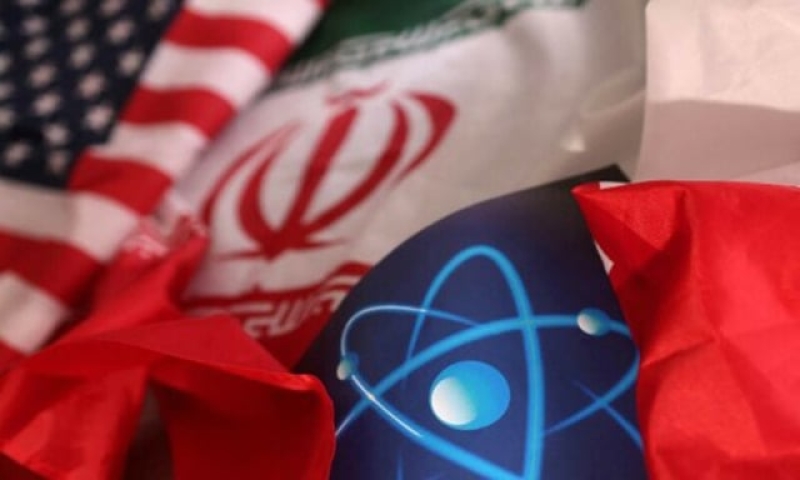- India Sees 9% Drop in Foreign Tourists as Bangladesh Visits Plunge |
- Dhaka Urges Restraint in Pakistan-Afghan War |
- Guterres Urges Action on Safe Migration Pact |
- OpenAI Raises $110B in Amazon-Led Funding |
- Puppet show enchants Children as Boi Mela comes alive on day 2 |
Iran Seeks ‘Real and Fair’ Deal in Nuclear Talks with U.S.

April 12, 2025 — Iran on Friday expressed its commitment to pursuing a “real and fair” agreement on its nuclear program, as the United States signaled openness to compromise ahead of high-stakes indirect talks scheduled this weekend in Oman.
The negotiations follow a letter from U.S. President Donald Trump to Iran’s Supreme Leader Ayatollah Ali Khamenei, expressing interest in diplomacy but warning of possible military action should talks collapse.
Ali Shamkhani, a senior adviser to Khamenei, confirmed on X that Foreign Minister Abbas Araghchi would travel to Oman “with full authority” for negotiations. “Tehran is not interested in political theater,” Shamkhani said. “We are prepared with significant, actionable proposals. If Washington shows goodwill, the path ahead can be smooth.”
Speaking aboard Air Force One, Trump reiterated his opposition to a nuclear-armed Iran. “I want Iran to be a great country — but they can’t have a nuclear weapon,” he said.
Steve Witkoff, Trump’s personal friend and envoy leading the talks, told The Wall Street Journal that the U.S. position begins with a demand for the dismantling of Iran’s nuclear program. Still, he suggested room for negotiation. “We’re open to compromises, as long as there’s no weaponization,” Witkoff said.
The upcoming talks mark a renewed attempt at diplomacy after Trump withdrew the U.S. from the 2015 Iran nuclear deal, calling it too lenient. Iran initially abided by the agreement but gradually scaled back compliance after Washington reimposed tough sanctions on its oil and finance sectors.
‘Diplomacy in Good Faith’
Ahead of the weekend negotiations, Iran’s Foreign Ministry spokesperson Esmaeil Baqaei emphasized Iran’s intention to resolve the issue diplomatically. “We are giving diplomacy a genuine chance, with full vigilance. America should value this despite its hostile rhetoric,” he said.
In response to continued U.S. sanctions, including a new round targeting Iran’s oil network and nuclear sector this week, Iranian nuclear agency chief Mohammad Eslami dismissed their effectiveness. “They failed to stop our progress despite maximum pressure,” he said, adding that Iran will not be swayed by “threats, psychological warfare, or foolish actions.”
Military Threats and Regional Tensions
Trump has not ruled out the use of military force if diplomacy fails, echoing remarks made during Israeli Prime Minister Benjamin Netanyahu’s visit to Washington. Netanyahu warned that time was running out and military confrontation would become “inevitable” without swift diplomatic progress.
The talks come amid heightened tensions following direct clashes between Iran and Israel, a first since the Hamas-led October 2023 attack on Israel. Hamas, supported by Iran, and Hezbollah in Lebanon have sustained heavy losses in recent months. Iran’s main Arab ally, Syria’s Bashar al-Assad, was toppled in December, reshaping regional dynamics.
Despite U.S. and Western interest in expanding the negotiations to include Iran’s ballistic missile program and regional influence, Tehran insists the talks will focus solely on its nuclear activities.
“If the American side avoids irrelevant demands and refrains from threats, a deal is within reach,” said Deputy Foreign Minister Majid Takht-Ravanchi.
Skepticism Remains
Still, skepticism looms within Iran. The hardline Kayhan newspaper criticized renewed negotiations as a "failed strategy," arguing that seeking relief through talks with Washington has proven ineffective.
The European Union, a key backer of the 2015 accord, reiterated on Friday that “there is no alternative to diplomacy” in resolving the Iranian nuclear issue.
As negotiators head to Oman, the world watches closely — with both hope and hesitation — to see whether diplomacy can overcome years of mistrust and geopolitical friction.

